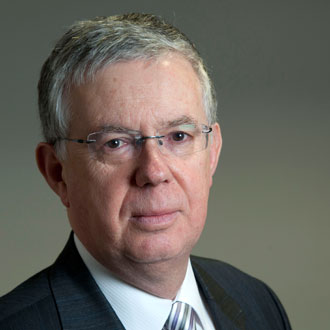NICE considering GP advisory body after criticism from profession

Exclusive GP leaders have met with NICE chiefs to discuss a new GP advisory body that will advise on the development of more practical guidelines for primary care, Pulse can reveal.
The GPC discussed the new board with NICE chair and former GP Professor David Haslam at a meeting last week in London, with a view to improving how NICE guidelines and standards are produced for primary care.
The move comes after a series of criticisms from GPs of clinical guidelines, or proposed guidance, across a range of areas from NICE – leading to accusations the organisation was ‘becoming a laughing stock’.
Dr Andrew Green, chair of the GPC’s clinical and prescribing subcommittee, said the GP advisory board was one of the measures discussed with Professor Haslam, and that the GPC was in support of the idea.
Dr Green said: ‘The GPC has met with Prof Haslam and the idea of an advisory board was one of the items discussed; we would be very supportive of this concept.
‘We had a wide ranging and constructive talk which included ways to improve GP representation on NICE committees, and how to best make NICE guidance relevant, practical, and deliverable. We look forward to continue to work with NICE on these areas which are clearly worthwhile aims of both organisations.’
GP experts have repeatedly raised concerns over the past year over guidelines, with, for example, diabetes recommendations described as ‘bonkers’, asthma diagnosis advice as ‘dangerous’ and cancer referral instructions as ‘overwhelming’.
LMC leaders have also demanded more GP involvement in the development of guidelines, while concerns about the feasibility of implementing recommendations at the frontline of general practice have been ramped up further by plans to make it harder for commissioners to allow GPs to deviate from NICE, and warnings about direct legal threats to GPs who fail to follow guidelines for individual patients.
Professor Haslam has previously acknowledged the challenges GPs face in following guidelines and has backed the development of so-called ‘multimorbidity’ guidance to offer more practical advice in patients with a number of long-term conditions, particularly with stopping unnecessary medications in older patients.
In an email seen by Pulse, Professor Haslam has also now conceded that some NICE guidelines were not acceptable to GPs – in large part because they are impossible to deliver in frontline care.
Related stories
Are NICE guidelines becoming a ‘laughing stock’?
‘NICE guidelines have always been remote, but they are getting worse’
Professor Haslam said: ‘I am very aware that not every publication from NICE meets with universal applause from the world of primary care. I think one of the real tensions lies between the enormous gap there is between the reality of what General Practice could deliver, and what it is able to deliver (with the current workforce crisis, workload, etc).’
A spokesperson for NICE said the organisation was committed to ‘improving the way we work’ and that Professor Haslam was ‘delighted’ that the GPC was enthusiastic about potential advisory group.
Dr Nick Summerton, former NICE advisor who has recently criticised NICE over proposed cancer guidelines, said an advisory group would be a ‘positive step’ provided GPs involved were willing to challenge the organisation.
He said: ‘Provided NICE recruit GPs who have the ability – and the courage – to constructively challenge the work of NICE, then it would be a very positive move. Primary care medicine is a growing and unique speciality and patients would be served much better if this was better recognised by those developing guidance for GPs.’
Dr Summerton added that having had positive discussions with David Haslam recently, he ‘would be keen to apply to join such a group’.
Visit Pulse Reference for details on 140 symptoms, including easily searchable symptoms and categories, offering you a free platform to check symptoms and receive potential diagnoses during consultations.










